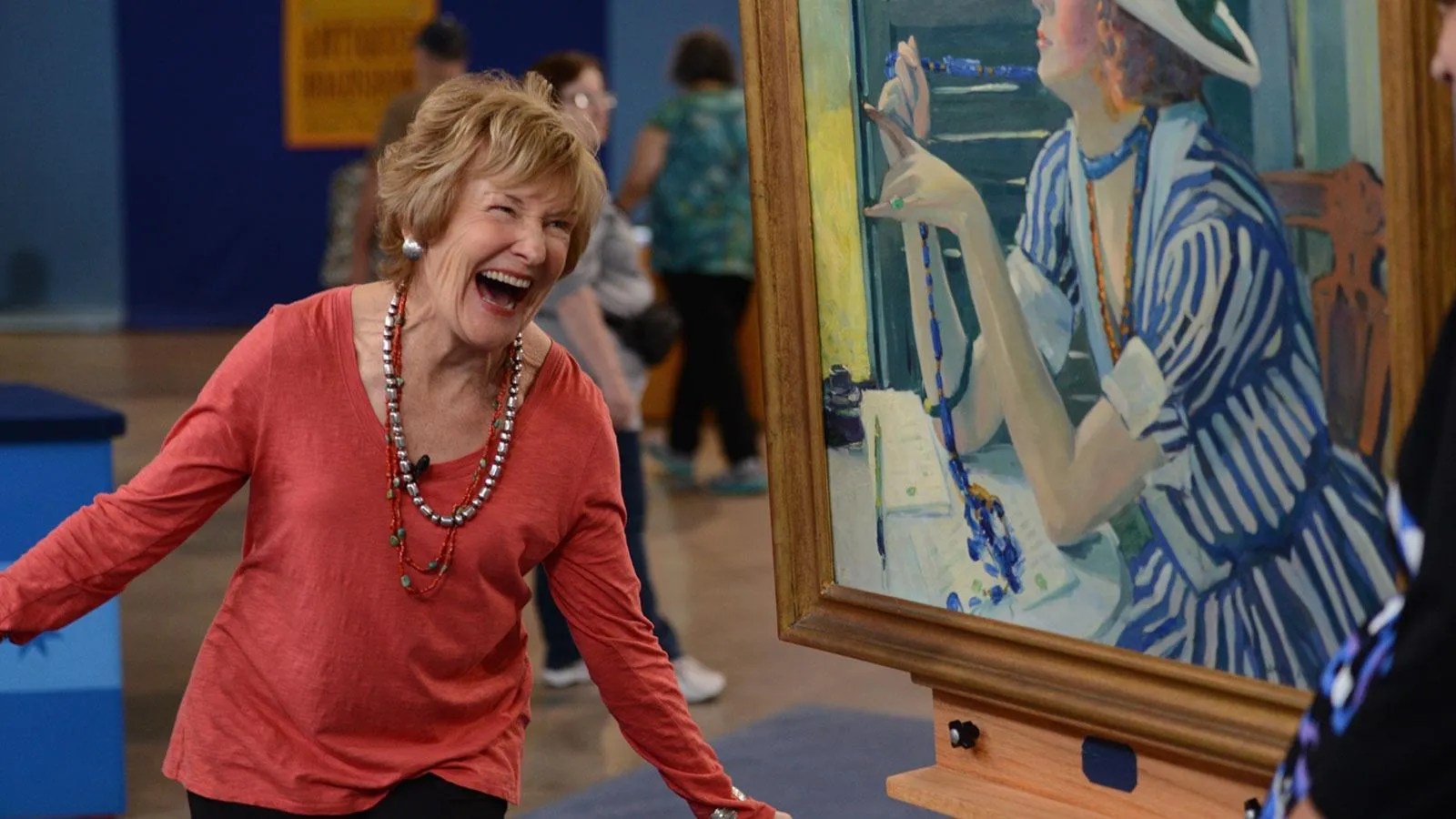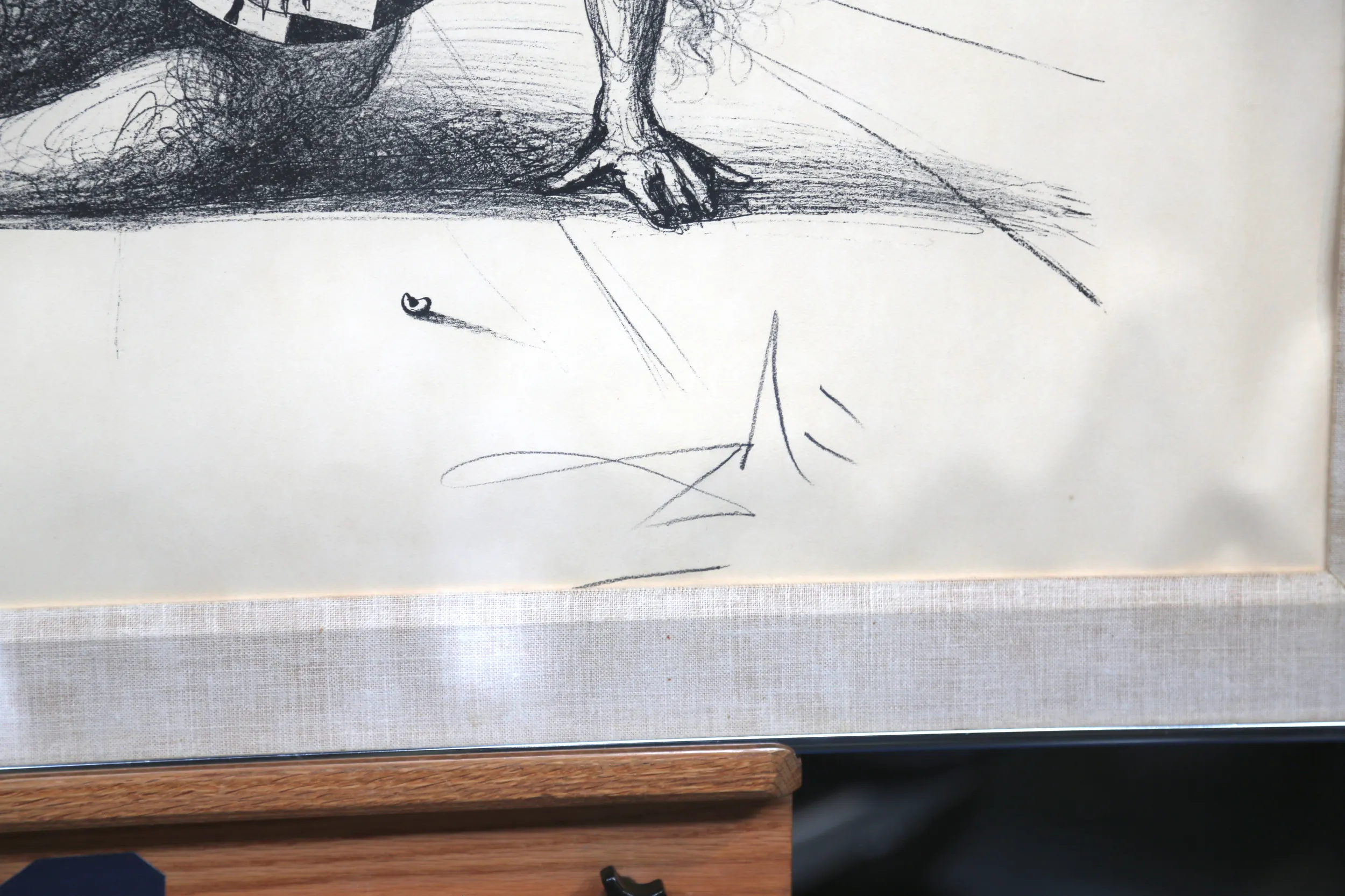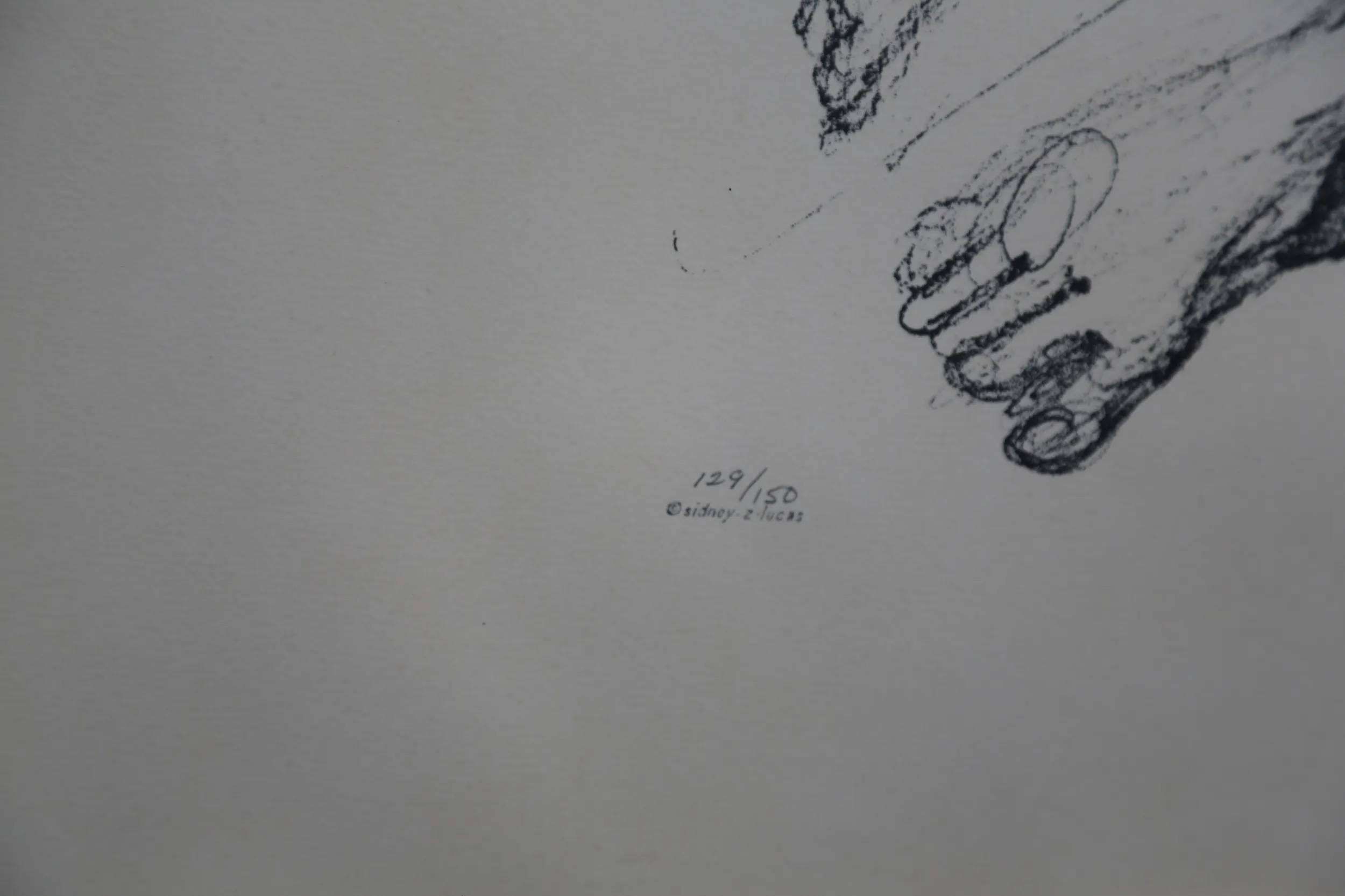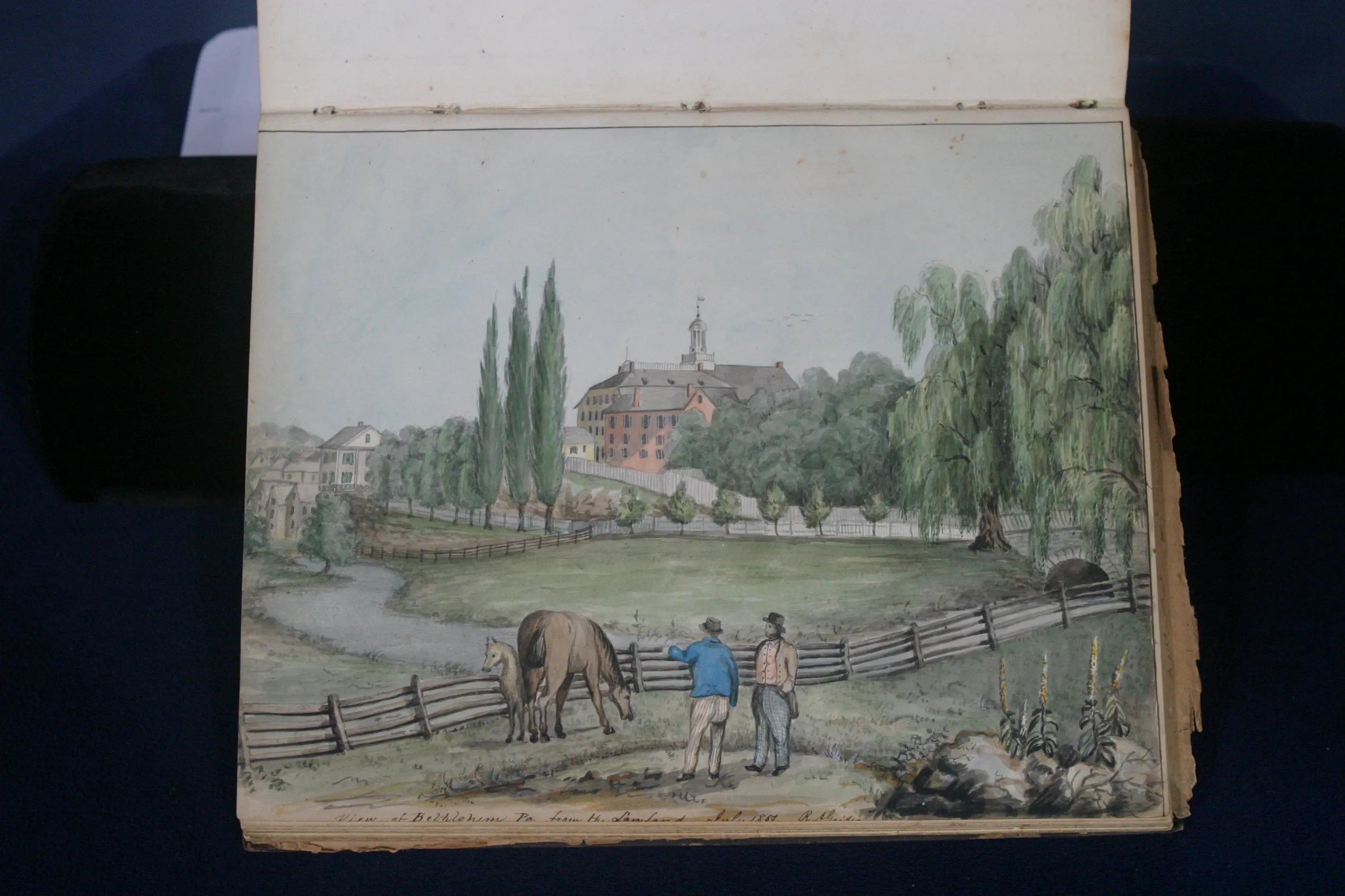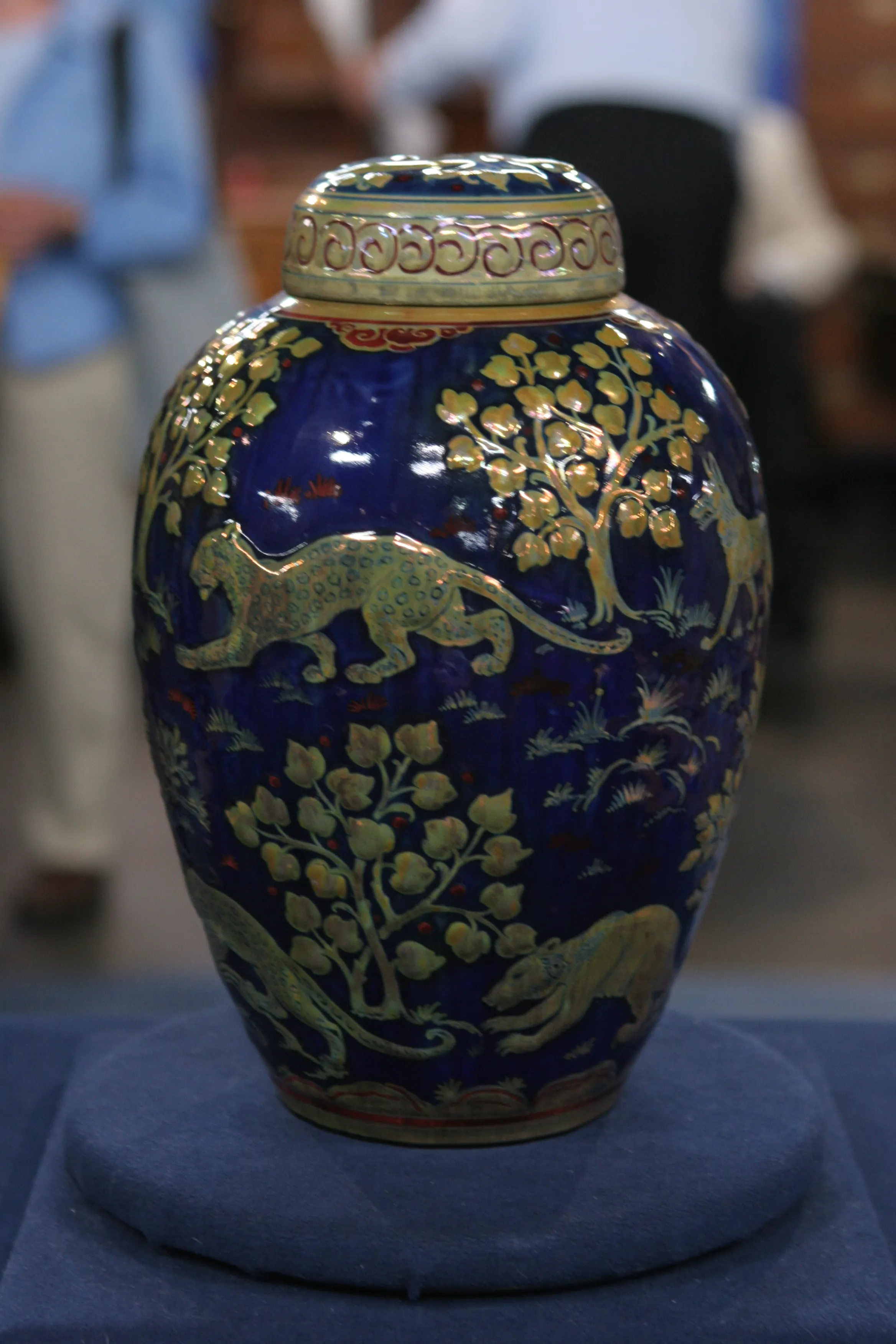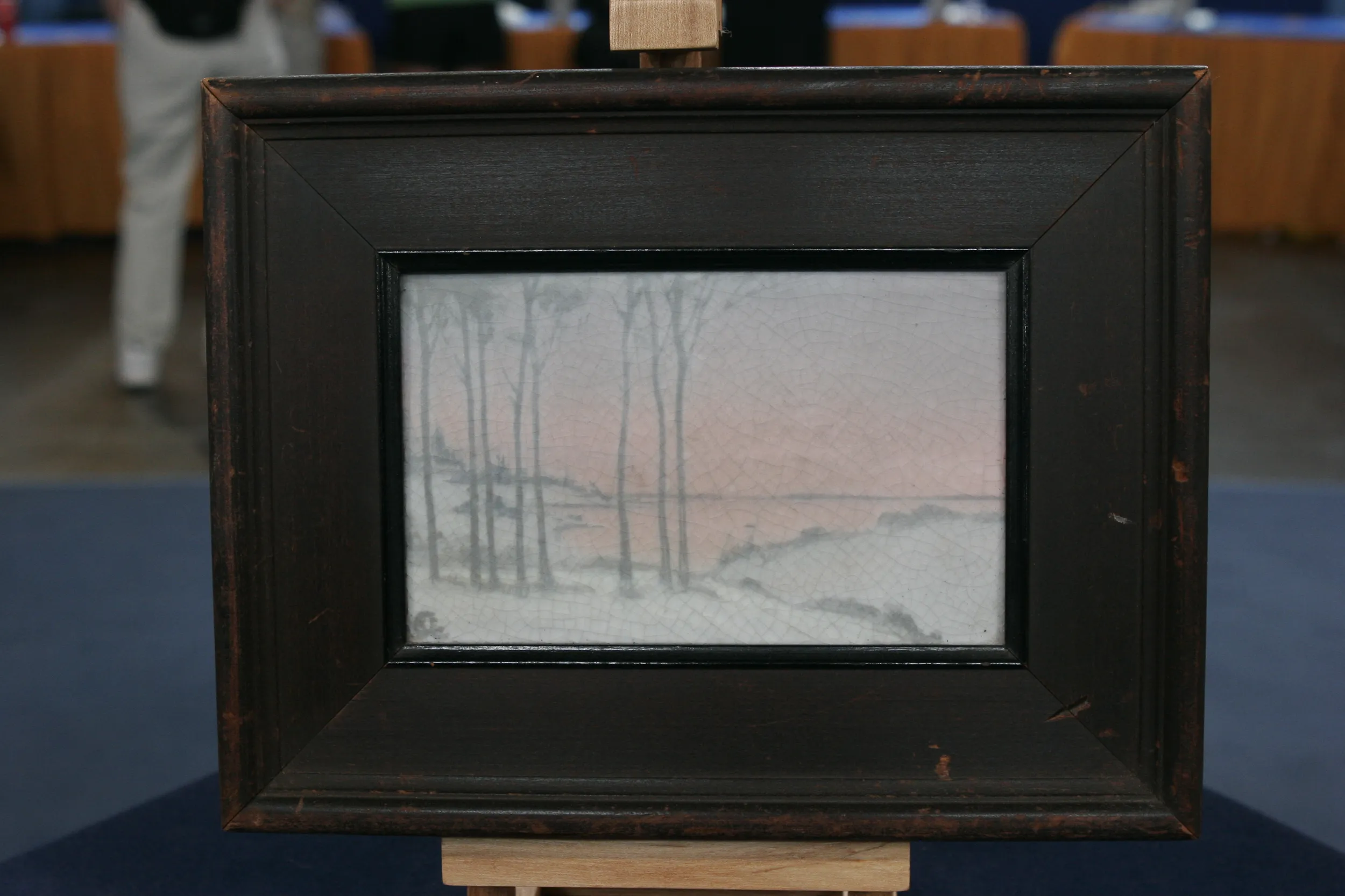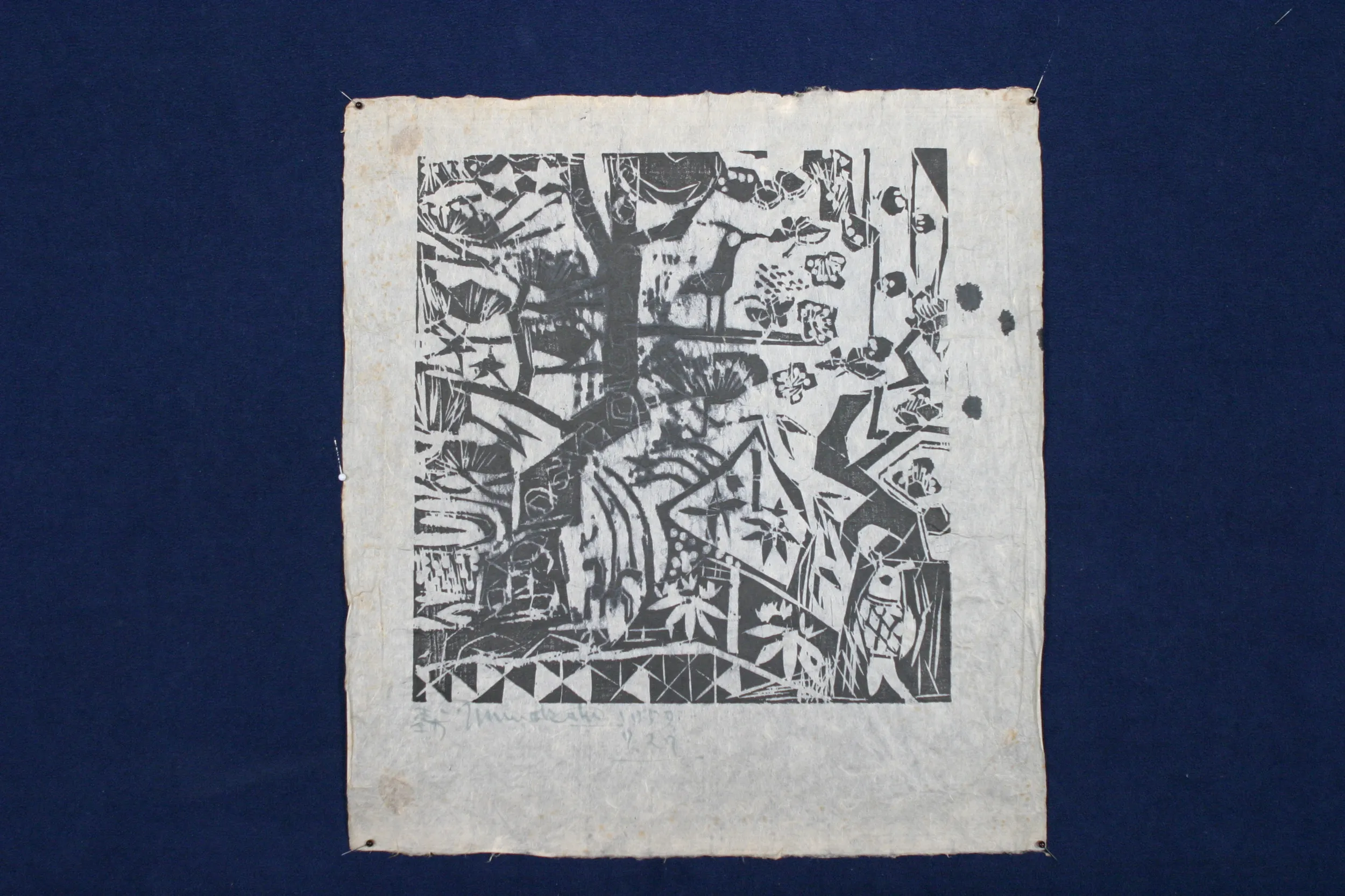GUEST: I found it in my parents' garage about five years ago tucked away behind a bunch of boxes. At first, I had no idea what it was, but it seemed relatively significant. So I pulled it out, and lo and behold, my father would tell me, "Oh, that's the Dalí." Apparently, uh, my, my uncle owned an art gallery in Chicago back in the day, and I, my father either gave him a loan or invested in the gallery a while back, and this was repayment of the debt or a thank you for the investment.
APPRAISER: Did your dad have any idea what, what it was? I mean, aside from a Dalí.
GUEST: He did. He did. Not aside from knowing that it was a Dalí. I think he just liked the way it looked. I'm not even sure if he got to pick exactly what he got. But other than that, that, that's all he's told me and that's all I know. It's sat in my basement ever since. It's not in the best condition, so, uh...
APPRAISER: Is this how you found it?
GUEST: Yes.
APPRAISER: Yeah.
GUEST: I, I sprayed some Windex on the glass this morning before I brought it in. Maybe wiped a few cobwebs off.
APPRAISER: Nice, uh, nice work.
GUEST: But that's it.
APPRAISER: All right, so it's a lithograph by Salvador Dalí.
GUEST: Okay.
APPRAISER: He signed it down here in pencil.
GUEST: Mm-hmm.
APPRAISER: And you can see down here it's a limited edition of 150. Pencil number there.
GUEST: Yes. Okay.
APPRAISER: He made this lithograph in 1965. The lithograph's title is "Drawers of Memory." It's based on an earlier sculpture, as well as an earlier painting...
GUEST: Okay.
APPRAISER: ...that he had made in 1936.
GUEST: Wow. Okay.
APPRAISER: The sculpture is now very well-known. It's called the "Venus de Milo With Drawers." So it's the famous Greek sculpture.
GUEST: Yeah.
APPRAISER: He made a replica of that and put drawers on the statue.
GUEST: Okay. Fascinating.
APPRAISER: And he was, thi, this was in 1936, and he was very influenced by Sigmund Freud.
GUEST: Mm.
APPRAISER: And Dalí once said that the only difference between the ancient Greek norm of the human body and then the body post-Freud was that
Freud had made the body full of secret drawers.
APPRAISER: Very interesting. So, this lithograph is based on those two earlier works.
GUEST: Mm-hmm.
APPRAISER: The painting, now in a German collection.
GUEST: Okay.
APPRAISER: The statue, the "Venus de Milo with Drawers," in the Art Institute of Chicago from 1936.
GUEST: Oh, okay.
APPRAISER: This is in reverse of the painting. The lithograph was published by Sidney Lucas...
GUEST: Mm-hmm.
APPRAISER: ...who had a gallery in New York, and worked very closely with Dalí in the mid-1960s.
GUEST: Oh, really. Okay.
APPRAISER: Condition on it, it's a little buckled at the edges.
GUEST: Yeah, I noticed that.
APPRAISER: I'd probably remat that.
GUEST: Okay. Is that all it would take?
APPRAISER: Yeah, it's probably just slipped in the matting.
GUEST: I see.
APPRAISER: And so it's buckled up like that. All in all, it looks like it's in great condition to me.
GUEST: Really? Wow. Okay.
APPRAISER: And it's one of Dalí's largest lithographs.
GUEST: Mm-hmm.
APPRAISER: And it's a very well-known image.
GUEST: Oh. Okay.
APPRAISER: There are a lot of forgeries of his work.
GUEST: Oh, really?
APPRAISER: We all know that. That's pretty, that's pretty...
GUEST: I didn't know that.
APPRAISER: Except for you.
GUEST: Apparently I'm out.
APPRAISER: Toward the end of his career, publishers making copies of his work...
GUEST: Mm-hmm.
APPRAISER: ...putting signatures on, forging the signatures...
GUEST: Yeah.
APPRAISER: ...forging the works. Lots of red flags with Dalí’s work. But this is surely genuine.
GUEST: Oh... (exhales)
APPRAISER: You've never had a value.
GUEST: No. I'm, have no idea.
APPRAISER: What's your guess? What do you think it's worth?
GUEST: Well, I've heard of Dalí before, so I know it's gotta be worth something, but...
APPRAISER: Yeah, he's, he's a household name.
GUEST: I really don't know the, how much difference in value a print would be versus a, the original. I would hope, like, a $1,000 to $2,000 or
something like that?
APPRAISER: Well, only 150 of these were made.
GUEST: Okay.
APPRAISER: So it's, it's fairly scarce, from 1965.
GUEST: Uh-huh. Mm-hmm.
APPRAISER: I would put a replacement value on this at $30,000.
GUEST: (laughing) What? (chuckles) Are you kidding me? (laughs) Whoo! All righty! That is, uh, more than I expected.
APPRAISER: Well, congratulations. It's a great print and, uh, take good care of it.
GUEST: Yeah, um, I think I'll, I think I'll put a new mat on it.
APPRAISER: Thank, thank your parents for it.
GUEST: Uh, yes, I will, I will do that, as well. My, my dad might want to take it back now. (laughing) I'm not sure. Wow. Suddenly taking on a lot
more beauty, you know? Very appreciative now.
APPRAISER: I like it more and more.
GUEST: I know, right? It's not going back in the basement.
APPRAISER: (laughs)


